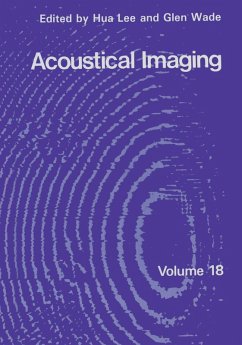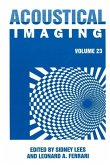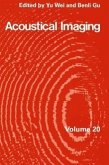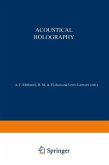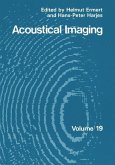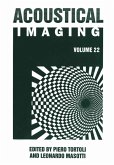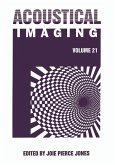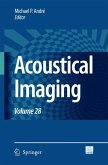How to produce images with sound has intrigued engineers and scientists for many years. Bats, whales and dolphins can easily get good mental images with acoustical energy, but humans have little natural ability for obtaining such images. The history of engineering and science, however, is an impressive demonstration that technological solutions can compensate, and then some, for deficiencies of nature in humans. Thus with the proper technology, we too can "see" with sound. Many methods involv ing ultrasonic energy can be employed to enable us to do so. Few of these methods are at all reminiscent of the acoustic systems employed by animals. Pulse-echo, phase-amplitude and amplitude-mapping approaches constitute the conceptual bases for three fundamentally different types of acoustic imaging systems and can be used for categorizing the systems. However, by now systems exist that combine the approaches in such sophisticated ways as to make an unambiguous categorization of some of the more complicated systems difficult or impossible. Among the instruments so far pro duced are mechanically-scanning focused instruments, chirped pulse-echo instruments, and instruments involving holography, tomography, parametric excitation, phase conju gation, neural networks, random phase transduction, finite element methods, Doppler frequency shifting, pseudo inversion, Bragg diffraction and reflection, and a host of other principles. The fifty-five chapters in this volume are selected from papers presented at the Eighteenth International Symposium on Acoustical Imaging which was held in Santa Barbara, California on September 18 - 20, 1989.
Dieser Download kann aus rechtlichen Gründen nur mit Rechnungsadresse in A, B, BG, CY, CZ, D, DK, EW, E, FIN, F, GR, HR, H, IRL, I, LT, L, LR, M, NL, PL, P, R, S, SLO, SK ausgeliefert werden.

